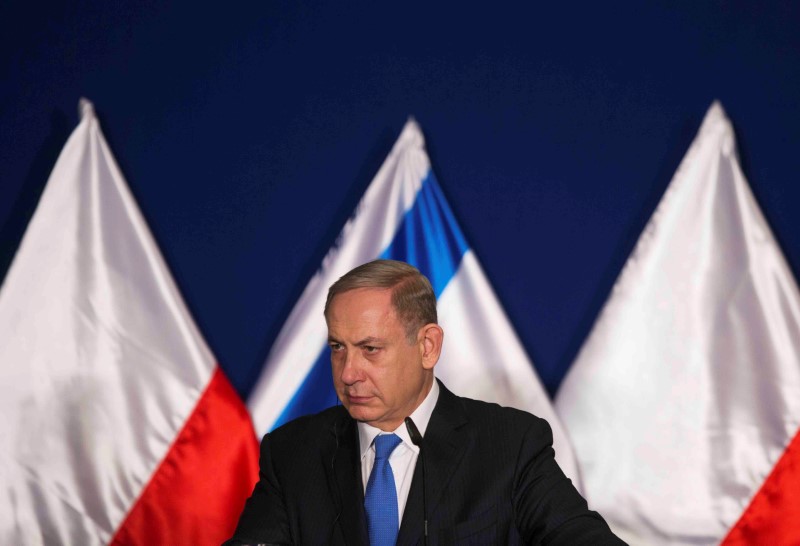By Ori Lewis
JERUSALEM (Reuters) - Israeli Prime Minister Benjamin Netanyahu stood by his personal attorney on Tuesday following media allegations about the lawyer's links to a multi-million dollar government submarine contract with Germany.
The deal to buy three submarines has come under public scrutiny in Israel since it was discovered that Netanyahu's lawyer David Shimron also represents the local agent of the German conglomerate set to build the vessels.
Both Netanyahu and Shimron have denied any impropriety and the shipbuilder, ThyssenKrupp Marine Systems, said it had no contractual connection with Shimron.
"Netanyahu has been acquainted with advocate David Shimron for many years and knows him to be a man of integrity who is as straight as a ruler, who goes beyond what is required to abide by the law and follow statutes and as a lawyer of the first order," a statement from the Israeli leader's office said.
Opposition legislators have called for a parliamentary inquiry and the Justice Ministry said this week that the attorney-general was examining whether there had been any conflict of interest, but no probe has been ordered.
Shimron represents Miki Ganor, an Israeli businessman described by the Kiel-based shipyards as its sales partner. A Shimron spokesman told Army Radio on Monday that the lawyer did not discuss the submarine purchase with Netanyahu and looks after a wide range of Ganor's legal interests.
Israeli Channel 10 news said that, contrary to Shimron's original statement that he had not discussed buying German vessels with any state officials, he subsequently said that he had lodged a query with the Defence Ministry that was permitted and did not constitute a conflict of interest.
The three submarines, costing about $1.5 billion, are due to replace ageing vessels, and will be delivered only in about another 10 years. Israel currently has a fleet of five German submarines, with a sixth due to go in service around 2018.
With the Israeli media largely focused on Shimron and the ethics of his representing both Netanyahu and Ganor, the prime minister, now in his fourth term, did not appear to be in any immediate political danger.
Nor has there been any indication that the deal itself, which Netanyahu, 67, defended in public remarks to his cabinet on Sunday, is in any jeopardy.
The submarines are widely believed to be capable of carrying missiles with nuclear warheads and serve as a second-strike deterrent against Iran, should it ever build atomic weapons. Iran has denied ever seeking nuclear arms and Israel has never acknowledged that it has any of its own.
First elected to Israel's top office two decades ago, Netanyahu has weathered several scandals, including a police investigation and state audits into his family's spending.

Former defence minister Moshe Yaalon, who was removed by Netanyahu and is now a political rival, has said that the new submarines are surplus to requirements.